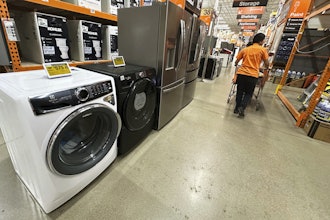
The continued drive for efficiency and operational excellence across all manufacturing sectors in the past five years has thrown the importance of best practice in inventory management into even sharper focus. The days of ‘open’ storage areas, with individual employees either able to help themselves to the items they require, or counters where they must wait for a dedicated stores colleague to fulfil their requirement, have in many facilities been consigned to the archives.
More and more companies have come to realize that intelligent management of inventory items – whether components, tools or other items such as safety equipment – can hold the key not just to optimizing control and reducing cost, but eliminating the risk of stock-outs, and beyond that into ensuring maximum reliability and performance. Typically, this takes the physical form of vending equipment, strategically located on the shop floor to minimize ‘walk and wait’ time, with individual employees able to access items through the use of a card or by entering a code.
With more and more companies seeking to harness the benefits of intelligent inventory management, we have seen a significant move away from bespoke solutions towards the greater use of affordable and repeatable yet versatile off-the-shelf carousel, locker and drawer type machines. This has brought intelligent inventory management within the realm of even the smallest manufacturers, allowing everyone to benefit from the efficiencies achievable.
The equipment is only part of the story, of course – any intelligent inventory management solution is only as effective as the manner in which stock levels are monitored and replenished before they run out. This is where reporting through intelligent software can give power to drive decisions, to monitor stock levels in real time and minimize waste and cost, therefore partnerships between the equipment manufacturers and the suppliers of the individual items have strengthened to provide a complete and responsive service.
A key benefit is the ability of the latest inventory management systems to deliver extensive data on usage patterns to inform operational decision-making, particularly when it comes to areas such as maintenance, repair, and overhaul (MRO). This is now being mirrored in many other key operational areas, as companies harness the power of the Internet of Things and move to Industry 4.0 – and even beyond that into Industry 5.0 where the greater use of robotics is set to entail evolution of the inventory needed on-site to support their uninterrupted operation.
Industry 4.0 could even be said to be a logical continuation of intelligent inventory management due to its focus on connecting systems, gathering data, and then harnessing the power of that data for commercial gain.
In short, intelligent inventory management is now no longer solely a tool of control, but a key value-adding business function on the shop floor, at the heart of plant management strategy.
This change is only set to gather further pace in the aftermath of the global COVID-19 pandemic. The pandemic has presented unique challenges for all, not least intelligent inventory suppliers, as it was in many cases simply impossible to get into customer facilities to install, maintain or replenish equipment. Unsurprisingly, one of the areas where we are seeing increased demands is in personal protective equipment (PPE), where ensuring sufficient availability of appropriate products is vital to business continuity and employee wellbeing.
Alongside this, more and more companies are striving to reach the goal of truly ethical manufacturing – not as a ‘tick box’ exercise but as a genuine business goal with ethical considerations increasingly becoming a key criterion for supplier selection. In these instances, the ability to demonstrate best practice when it comes to overall efficiency and reliability, not least in minimizing waste, will be critical. This can be extended further through the use of recycled, rather than ‘virgin’, products, which can now be integrated into many intelligent inventory management programs.
In short, intelligent inventory management now has a greater role than ever to play in maximizing reliability and minimizing downtime for maintenance and supporting individual manufacturers to optimize their operations.
For more info, visit: www.supplypoint.com






















